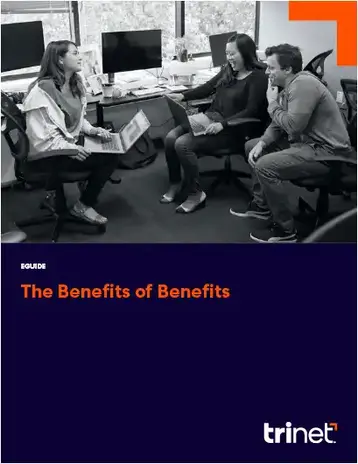
New Mexico is 1 of 14 states — along with the District of Columbia — that must offer paid sick leave. Paid sick leave started in New Mexico during the summer of 2022. According to the new laws, employees can earn as much as 64 hours of paid sick leave. Most private employers, including small businesses, have to comply with the state-mandated requirement. The lead sponsor of the law, Rep. Christine Chandler, said, “No one should have to go to work sick and risk public health because they can’t afford to lose a day’s pay. Yet more than half of our state’s workforce, many of whom are in essential positions, have been denied the right to earned time off to care for themselves or a loved one when they fall ill.” Democratic Gov. Michelle Lujan Grisham signed the Healthy Workplaces Act (HWA) on April 8, 2021.
The Healthy Workplaces Act and New Mexico sick leave laws
Unlike paid sick leave laws in some states, small employers are not exempt from the HWA. Private employers with at least 1 employee working in the state, including workers who are part-time, seasonal, and temporary must comply. Public employers — local, state, and federal government — are exempted. State employees in New Mexico receive 12 weeks of paid parental leave (effective January 2020) under an executive order signed by Grisham. Independent contractors — Employers do not have to provide leave to independent contractors. There is a strong penalty provision in the law for employers who misclassify, according to Danny W. Jarrett, managing attorney for law firm Jackson Lewis’ Albuquerque office.
Accrual
Employees earn 1 hour of sick leave for every 30 hours worked. Employers may choose to provide a higher accrual rate. Alternatively, employers can “frontload” the time off by giving employees 64 hours of earned sick leave for the upcoming year on Jan. 1 of each year. Employees whose employment begins after Jan. 1 of a given year may be provided with a prorated portion of the 64 hours. Employers can choose how to define the 12 months in which the leave can be taken, including using a calendar or fiscal year or a rolling 12-month period measured from when the employee first takes leave.
Rate of pay
Pay is at the employee’s regular rate with the same benefits, including healthcare benefits.
Reason for leave
An employee may use earned sick leave for the following reasons:
- Their own or a family member’s health needs, including preventive care or a physical or mental health illness, injury, or condition
- Meetings at the child’s school or with a childcare provider regarding the child’s health or disability
- Matters related to their own or a family member’s domestic abuse, sexual assault, or stalking
What is the definition of family members for sick leave?
The definition of family members includes:
- An employee’s spouse or domestic partner
- Children, whether related to the employee or the employee’s spouse or domestic partner, including a biological, adopted, or foster child, a stepchild or legal ward, or a child to whom the employee stands in loco parentis
- Parents, including biological, foster, step, or adoptive, or a legal guardian or a person who stood in loco parentis when the employee was a minor child
- Grandparents
- Grandchildren
- Siblings, whether biological, foster, step, or adopted
- An individual whose close association with the employee or the employee’s spouse or domestic partner is the equivalent of a family relationship
No waiting period
There is no waiting period for accrual or use of the HWA. Accrual begins on the first day of employment or the effective date of the new legal requirement.
Leave increments
Employees can take earned sick leave in small increments, including 1 hour or less than an hour if the employer’s payroll system allows it.
Leave carryover
Accrued, unused earned sick leave carries over from year to year but employers can cap usage at 64 hours over 12 months.
Unused leave
Employers do not have to pay for accrued, unused sick leave when the employee resigns, retires, or is let go.
How and when do New Mexico employees give sick leave notice?
Employees can provide notice either verbally or in writing. When possible, the request should include the length of time that the employee expects to be out on paid sick leave. When the use of earned sick leave is not foreseeable, the employee should notify the employer as soon as possible either verbally or in writing.
Employees should make a reasonable effort to schedule the leave in a manner that does not “unduly disrupt the employer’s operations.”
No finding of replacement required
Employees do not have to find a replacement worker to cover for the worker while out on leave.
Equivalent sick leave policy
An employer with a paid sick leave policy that is the equivalent of the Healthy Workplaces Act, including the same terms and conditions, will be viewed as compliant with the HWA.
What documentation do employers need for New Mexico paid sick leave?
Employers can require documentation signed by a healthcare professional for the paid sick leave if the employee uses two (2) or more consecutive workdays of sick leave. In instances of domestic abuse, sexual assault, or stalking, an employee may provide 1 of several types of documentation, including a police report, a court-issued document, or a signed statement from a victim services organization, clergy member, employee, etc. An employer may not require that the documentation explain the nature of any medical condition or the details of the domestic abuse, sexual assault, or stalking. The signed statement required may be written in the employee’s native language and does not have to be in a particular format or notarized. The employee must provide the documentation upon employer request in a timely manner, but the employer cannot delay the start of the sick leave on the basis that the employer has not yet received documentation.
No retaliation
Employers cannot retaliate against an employee for taking advantage of paid sick leave.
Employer notice and posting requirements for sick leave
Employers must provide written or electronic notice to an employee at the start of their employment that includes the following:
- The employee’s right to earned sick leave
- The manner in which sick leave is accrued and calculated
- Terms of the use of earned sick leave as guaranteed by the Healthy Workplaces Act
- That retaliation against employees for the use of sick leave is prohibited
- The employee’s right to file a complaint with the division if earned sick leave as required pursuant to the Healthy Workplaces Act is denied by the employer or if the employee is retaliated against
- All means of enforcing violations of the Healthy Workplaces Act
The notice must be in English, Spanish, or any language that’s the 1st language that at least 10% of the employer’s workforce speaks — whichever the employee requests.
Employers must also display a poster in a conspicuous and accessible place in English, Spanish, and any language that is the 1st language that at least 10% of the employer’s workforce speaks. Notices and posters for employers' use will be available from the state.
Record keeping
Employers must retain records documenting hours worked by employees and earned sick leave taken by employees for 48 months.
Undocumented workers
Employers can’t use a worker’s status as a non-citizen in defending legal claims brought under the HWA. “It shall not be a defense to any action brought pursuant to this section that the complaint was brought by or in regard to the employment of a worker who does not have evidence of having a legal presence in the United States,” according to the final version of the law posted on the legislature’s website.
Collective bargaining
The paid time off is in addition to any paid time off provided by a collective bargaining agreement unless it provides sick leave for the same purposes and under the same terms as the HWA.
Enforcement
Employees will be able to file administrative charges with the New Mexico Department of Workforce Solutions' Labor Relations Division. Employees can also file a lawsuit for violation of the HWA within 3 years of the alleged wrong.
No preemption
Bernalillo County in New Mexico enacted a paid leave requirement in 2020. The “Employee Wellness Act” requires that all businesses with at least 2 employees offer 1 hour of paid time off to all employees for any use for every 32 hours worked, up to a maximum of 56 hours a year over 3 years. Employees can use the leave for any reason. The New Mexico locality was the first to approve such a law. Only 2 other states, Nevada and Maine, had a similar law on the books. The HWA doesn’t preempt other laws or collective bargaining agreements that provide greater accrual or use of earned sick leave. As a result, according to Jarrett, both the HWA and county paid leave ordinance apply to covered employers.
Many states are changing sick leave laws in favor of workers
New Mexico is just 1 of 14 states (and counting) that have made significant changes to its sick leave offerings. State laws are quickly changing in favor of workers, likely due in part to what we’ve seen from the COVID-19 programs. In addition to New Mexico, Colorado, California, Connecticut, Maryland, Massachusetts, Michigan, New Jersey, New York, Oregon, Rhode Island, Vermont, Washington State, and the District of Columbia all have state-mandated paid sick time policies. Check out this definitive list of states and cities with paid sick leave laws.
This article has been updated.
This communication is for informational purposes only; it is not legal, tax or accounting advice; and is not an offer to sell, buy or procure insurance.
This post may contain hyperlinks to websites operated by parties other than TriNet. Such hyperlinks are provided for reference only. TriNet does not control such web sites and is not responsible for their content. Inclusion of such hyperlinks on TriNet.com does not necessarily imply any endorsement of the material on such websites or association with their operators.






